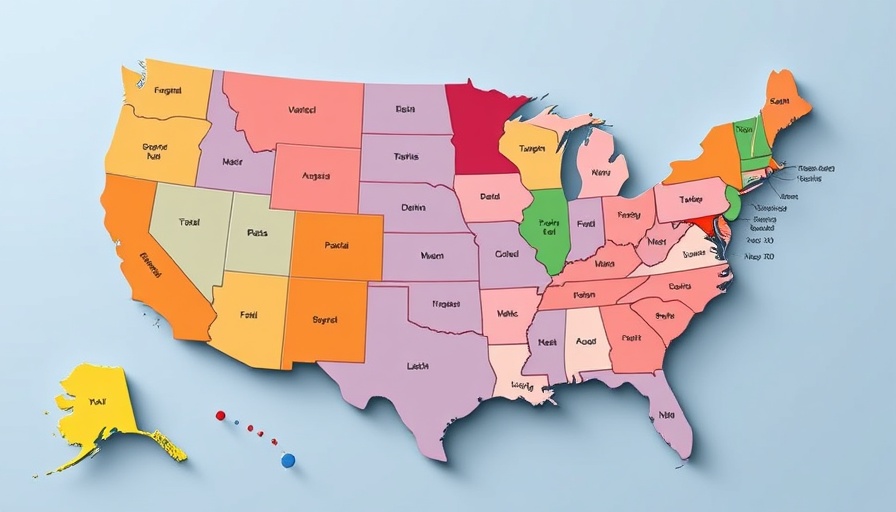
Online Sports Betting Taxes: The Landscape for 2025
Since the 2018 Supreme Court ruling in Murphy v. NCAA, which declared the federal prohibition of sports betting unconstitutional, the legal landscape for sports betting in the United States has seen an explosive transformation. As of 2025, a staggering 40 states and the District of Columbia have embraced some form of legal sports betting, providing a dynamic marketplace that varies significantly across different regions.
Understanding State Tax Structures
The diversity in state taxation policies for online sports betting represents a critical aspect for small business owners and entrepreneurs involved in this industry. The rate at which states impose taxes on sportsbook revenues can range dramatically, affecting both profitability and market strategy. For instance, New Hampshire, New York, Oregon, and Rhode Island maintain the highest tax rates at 51 percent of sportsbook revenues, potentially stunting the growth of operators in those states.
Conversely, states like Nevada and Iowa have established significantly lower tax environments, with rates as low as 6.75 percent. This discrepancy prompts serious considerations for entrepreneurs hoping to launch or expand betting platforms, as taxes will directly affect their operational costs and potential profit margins.
The Emphasis on Tax Bases: GGR vs. Handle
Most states lean towards an ad valorem tax based on Gross Gaming Revenues (GGR), which is a measure of profitability. However, this approach raises important questions regarding its implications, particularly in relation to promotional wagers that sportsbooks often use to attract customers. Some policymakers are scrutinizing how these wagers impact taxable income, and this evolving conversation is crucial for entrepreneurs navigating compliance in this complex regulatory environment.
Tennessee takes a unique stance by taxing the total amount wagered—also known as the sports betting handle—rather than the revenues themselves. This presents a distinct model that could appeal to growing betting markets and create an attractive opportunity for operators seeking to capitalize on higher volume through lower tax burdens.
Monopolies and Their Economic Implications
States like Oregon have opted for tightly controlled markets, granting online sports betting monopolies in exchange for steep tax revenues. The state lottery permitted DraftKings to monopolize online sports betting within its borders, providing a staggering 51 percent income to the state from the sportsbook proceeds. While this model generates immediate revenue for the state, it raises questions about market accessibility and competition vs. consumer choice, which can heavily affect small businesses looking to integrate sports betting into their offerings.
Future Predictions: The Expansion of Online Betting
As the online sports betting industry continues to grow under increasingly liberal regulations, small businesses and entrepreneurs must also stay alert to the potential changes in taxation, market access, and competition. The rapid evolution of technology in mobile betting and digital platforms is likely to outpace legislative reforms, necessitating that businesses remain agile to capitalize on opportunities as they emerge.
Furthermore, with more states considering the legalization of sports betting, we can anticipate significant deliberations around taxation frameworks that might encourage or deter potential entrants in the marketplace. Entrepreneurs may find their greatest ally in agility as they navigate these regulatory shifts.
Common Misconceptions About Sports Betting Taxes
One common misconception is that all states have a similar approach to sports betting taxation. In reality, each state's statutes can reflect dramatically different priorities and models of taxation. Furthermore, entrepreneurs often assume that lower tax rates inherently lead to higher revenue; however, market size and consumer engagement play crucial roles as well.
Looking ahead, it's crucial for small business owners to educate themselves fully on the tax obligations in their respective states and forecast how changing regulations will impact their operations. Ignorance of tax liabilities can lead to severe financial penalties and operational constraints.
Decisions and Strategies for Entrepreneurs
In this evolving landscape, entrepreneurs in the online sports betting realm have the opportunity to harness insights from tax implications to fine-tune strategies that drive competitive advantage. Understanding state-specific regulations, focusing on customer engagement through promotions, and aligning their business models with tax advantages can help mitigate impending costs while maximizing revenues.
As such, developing relationships with tax advisors who specialize in gaming regulations will be indispensable. While navigating these intricate laws might initially seem overwhelming, it ultimately leads to a stronger foundation for long-term success. More importantly, any entrepreneurial efforts in this sector should include a continuous evaluation metric that gauges market engagement and tax impact.
As online sports betting evolves, it is equally essential for stakeholders—from operators to policymakers—to build a strong dialogue around fair taxation that maintains industry growth without deterring market participation.
In conclusion, understanding online sports betting taxes is not just fundamental for compliance; it serves as a strategic tool for small business owners aiming to thrive in a competitive environment. By staying informed of local tax frameworks and leveraging insights to drive operational decisions, businesses can better position themselves for success.
Ready to delve deeper into the strategies that can help you maximize your success in this booming industry? Start by consulting with tax experts who understand the online sports betting landscape.
 Add Row
Add Row  Add
Add 



